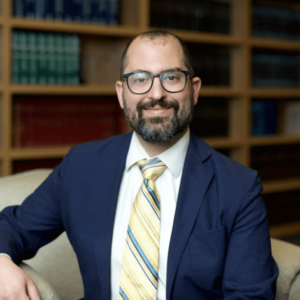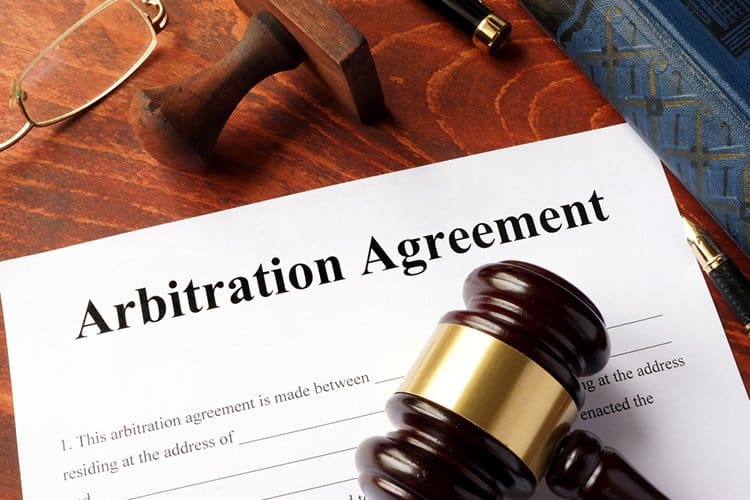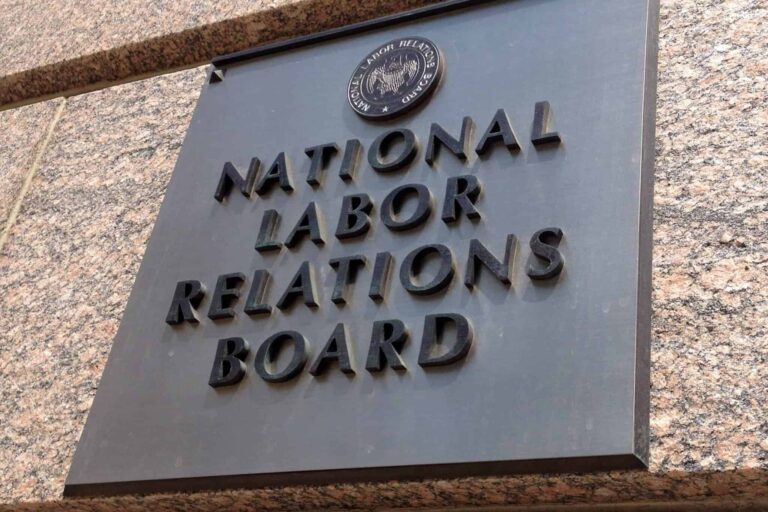
Darin M. Dalmat is a Senior Partner at Barnard, Iglitzin, & Lavitt LLP—a law firm in Seattle, Washington, that represents unions.
With two Federal Arbitration Act cases on the Court’s docket this term, it’s a good time to consider collective enforcement of employment rights in the face of the Court’s hostility to class arbitration. Apart from recent developments in California on PAGA, we’re likely stuck with individual arbitration of employment claims whenever an employer requires employees to sign arbitration agreements—at least until Congress amends the Act. Meanwhile, is there no effective way to vindicate collective statutory employment claims funneled to arbitration?
Basic civil procedure suggests there may be. In Parklane Hosiery Co. v. Shore, the Court approved the use of nonmutual offensive collateral estoppel (now, better known as “issue preclusion”), in certain circumstances. That’s a mouthful. It means that when one plaintiff wins a case, and prevails on a particular issue, a second plaintiff doesn’t (usually) have to relitigate that issue in a later case involving the same defendant. Instead, the second plaintiff can use the judgment for the first plaintiff as conclusively establishing, in later litigation with the same defendant, all issues that were litigated and resolved in the first litigation.
Does non-mutual offensive issue preclusion apply in arbitration? An unconfirmed arbitration award does not get issue preclusive effect (McDonald). But arbitration awards confirmed by courts generally do. See, e.g., Restatement (Second) of Judgments § 84(1); NTCH-WA v. ZTE Corp., 921 F.3d 1175, 1180 (9th Cir. 2019); Grimes v. BNSF Ry., 746 F.3d 184 (5th Cir. 2014); Manganella v. Evanston Ins. Co., 700 F.3d 585, 591 (1st Cir. 2012); Lewis v. Circuit City Stores, 500 F.3d 1140, 1147 (10th Cir. 2007); Manion v. Nagin, 394 F.3d 1062, 1066 (8th Cir. 2005); Rudell v. Comprehensive Accounting Corp., 802 F.2d 926, 929 (7th Cir. 1986).
The cases just cited give confirmed arbitral awards issue-preclusive effect in later federal-court litigation. But what about arbitrators? Should they also give confirmed awards issue-preclusive effect? Generally, yes, although, like judges, arbitrators have discretion to apply issue preclusion. See, e.g., Collins v. D.R. Horton, Inc., 505 F.3d 874, 880 (9th Cir. 2007); Bear, Stearns & Co., Inc., v. 1109580 Ontario, Inc., 409 F.3d 87, 90-91 (2d Cir. 2005); Aircraft Braking Sys. Corp. v. Local 856, 97 F.3d 155, 159 (6th Cir.1996); Miller v. Runyon, 77 F.3d 189, 193 (7th Cir.1996); John Morrell & Co. v. Local Union 304A, 913 F.2d 544 (8th Cir.1990). It is certainly sensible to do so to avoid the possibility of inconsistent judgments, which is, after all, what confirmed awards become under 9 U.S.C. § 13.
That brings us back to Parklane, which set forth case-specific factors counseling against offensive use of issue preclusion. Under Parklane, issue-preclusion should not apply when (1) the defendant in the first action faces small or nominal damages and future suits are unforeseeable, giving the defendant little incentive to litigate vigorously; (2) if the award for which preclusion is claimed is itself inconsistent with other judgments favoring the defendant; or (3) the second action affords the defendant procedural opportunities unavailable in the first action that could readily cause a different result.” Parklane, 439 U.S. at 330–31. See also E. I. du Pont de Nemours & Co. v. Abbott, 144 S. Ct. 16 (2023) (Thomas, J., dissenting from the denial of certiorari regarding a case presenting the question whether non-mutual issue preclusion should apply in multi-district litigation).
Fortunately, employee advocates hold the answers to these concerns in their own hands. Ideally, the lawyer representing the group of employees would notify defense counsel from the beginning that the lawyer intends to arbitrate the claims of each represented employee, one at a time, albeit raising common questions of liability. That notice would give the defendant incentive from the get-go to defend the first case vigorously. Presumably, if procedural rules allowed it, the employees’ lawyer would present the strongest case first, so that if the lead employee loses, the employees’ lawyer would have little incentive to continue pursuing the cases; but, on the other hand, if the employees’ lawyer wins the first case, there would be no opportunity for inconsistent judgments because the lawyer would ask for issue-preclusive effect in the second case. Finally, because all the cases, by hypothesis, are subject to arbitration under the same (or similar) arbitration agreements, there would not be a meritorious argument that the procedural opportunities differed from case to case.
To be sure, this approach would require employment lawyers to act like class counsel from the beginning. They would have to enter representation agreements with each affected employee one by one. But employment lawyers are already used to opt-in representation procedures in FLSA and ADEA collective actions. See Hoffmann-La Roche Inc. v. Sperling, 493 U.S. 165, 170-73 (1989). To be sure, they would now have to manage employee sign-up without the benefit of court-mandated discovery of other employees’ contact information and notice. Perhaps the modern First Amendment jurisprudence governing lawyer advertising and solicitation will enable social-media savvy employment lawyers to recruit sufficient clients to enable these kinds of mass arbitrations, juiced with issue preclusion, to be economically feasible.
A final obstacle the employment advocate may encounter is the contention that arbitral awards resolving statutory claims are not entitled to issue-preclusive force because of the incredible deference accorded to such awards when judicially confirmed. See 9 U.S.C. § 10(a) (generally requiring confirmation of an award unless it was obtained by fraud or corruption; the arbitrator was corrupt; the arbitrator engaged in misconduct; or the arbitrator exceeded the powers accorded by the arbitral agreement). On this theory, the only issue necessarily decided by a confirmed award is that an arbitrator issued an award pursuant to arbitral authority (and without fraud or corruption)—not that the arbitrator got it right. This theory, however, cannot be readily squared with modern arbitration jurisprudence, which views arbitration of statutory claims as a waiver of the judicial forum only, not of substantive rights. 14 Penn Plaza LLC v. Pyett, 556 U.S. 247, 266 (2009). The current Court views arbitrators as equally able to “resolve complex questions of fact and law” as are courts. Id. at 269.
If that is so, then arbitrators’ resolutions of those factual and legal questions are entitled to no less preclusive effect, on issues they have actually resolved, than would judicial resolution of the same questions. The argument-from-deference proves too much: district court judgments, after all, are not deprived of issue-preclusive effect simply because their factual findings are reviewed for clear error. Fed. R. Civ. P. 52(a)(6).
Section 13 of the Arbitration Act gives confirmed awards the same force and effect as judgments in civil actions. 9 U.S.C. § 13. That means awards finding liability flowing from common policies should, once confirmed, be given issue-preclusive effect in all subsequent cases against the same defendant presenting the same issue.
Only a statutory amendment to the Arbitration Act can correct judicial hostility to class arbitration. While we await that wrong to be righted, employment lawyers could try approximating class arbitration through mass arbitrations set up from the beginning to seek nonmutual offensive issue preclusion.
The views and opinions expressed in this article are those of the author and do not necessarily reflect the views or positions of any entities that the author represents.










Daily News & Commentary
Start your day with our roundup of the latest labor developments. See all
January 5
Minor league hockey players strike and win new deal; Hochul endorses no tax on tips; Trump administration drops appeal concerning layoffs.
December 22
Worker-friendly legislation enacted in New York; UW Professor wins free speech case; Trucking company ordered to pay $23 million to Teamsters.
December 21
Argentine unions march against labor law reform; WNBA players vote to authorize a strike; and the NLRB prepares to clear its backlog.
December 19
Labor law professors file an amici curiae and the NLRB regains quorum.
December 18
New Jersey adopts disparate impact rules; Teamsters oppose railroad merger; court pauses more shutdown layoffs.
December 17
The TSA suspends a labor union representing 47,000 officers for a second time; the Trump administration seeks to recruit over 1,000 artificial intelligence experts to the federal workforce; and the New York Times reports on the tumultuous changes that U.S. labor relations has seen over the past year.